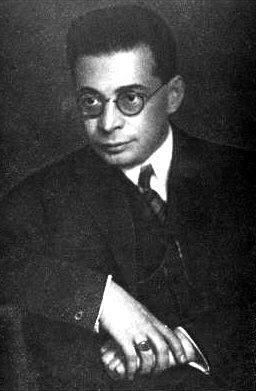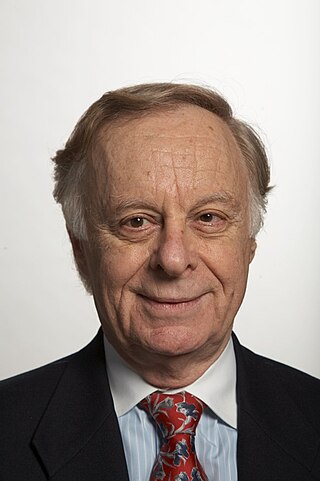Psychoanalysis is a set of theories and therapeutic techniques that deal in part with the unconscious mind, and which together form a method of treatment for mental disorders. The discipline was established in the early 1890s by Sigmund Freud, whose work stemmed partly from the clinical work of Josef Breuer and others. Freud developed and refined the theory and practice of psychoanalysis until his death in 1939. In an encyclopedic article, he identified the cornerstones of psychoanalysis as "the assumption that there are unconscious mental processes, the recognition of the theory of repression and resistance, the appreciation of the importance of sexuality and of the Oedipus complex." Freud's colleagues Alfred Adler and Carl Gustav Jung developed offshoots of psychoanalysis which they called individual psychology (Adler) and analytical psychology (Jung), although Freud himself wrote a number of criticisms of them and emphatically denied that they were forms of psychoanalysis. Psychoanalysis was later developed in different directions by neo-Freudian thinkers, such as Erich Fromm, Karen Horney, and Harry Stack Sullivan.

Sigmund Freud was an Austrian neurologist and the founder of psychoanalysis, a clinical method for evaluating and treating pathologies seen as originating from conflicts in the psyche, through dialogue between patient and psychoanalyst, and the distinctive theory of mind and human agency derived from it.

Sándor Ferenczi was a Hungarian psychoanalyst, a key theorist of the psychoanalytic school and a close associate of Sigmund Freud.

Otto Rank was an Austrian psychoanalyst, writer, and philosopher. Born in Vienna, he was one of Sigmund Freud's closest colleagues for 20 years, a prolific writer on psychoanalytic themes, editor of the two leading analytic journals of the era, managing director of Freud's publishing house, and a creative theorist and therapist. In 1926, Rank left Vienna for Paris and, for the remainder of his life, led a successful career as a lecturer, writer, and therapist in France and the United States.
Psychodynamic psychotherapy and psychoanalytic psychotherapy are two categories of psychological therapies. Their main purpose is revealing the unconscious content of a client's psyche in an effort to alleviate psychic tension, which is inner conflict within the mind that was created in a situation of extreme stress or emotional hardship, often in the state of distress. The terms "psychoanalytic psychotherapy" and "psychodynamic psychotherapy" are often used interchangeably, but a distinction can be made in practice: though psychodynamic psychotherapy largely relies on psychoanalytical theory, it employs substantially shorter treatment periods than traditional psychoanalytical therapies. Psychodynamic psychotherapy is evidence-based; the effectiveness of psychoanalysis and its relationship to facts is disputed.
Repetition compulsion is the unconscious tendency of a person to repeat a traumatic event or its circumstances. This may take the form of symbolically or literally re-enacting the event, or putting oneself in situations where the event is likely to occur again. Repetition compulsion can also take the form of dreams in which memories and feelings of what happened are repeated, and in cases of psychosis, may even be hallucinated.
Otto Fenichel was a psychoanalyst of the so-called "second generation". He was born into a prominent family of Jewish lawyers.
In psychoanalysis, resistance is the individual's efforts to prevent repressed drives, feelings or thoughts from being integrated into conscious awareness.
Paul Ferdinand Schilder was an Austrian psychiatrist, psychoanalyst, and medical researcher.
Hermann/Herman Nunberg was a psychoanalyst and neurologist.
Identification is a psychological process whereby the individual assimilates an aspect, property, or attribute of the other and is transformed wholly or partially by the model that other provides. It is by means of a series of identifications that the personality is constituted and specified. The roots of the concept can be found in Freud's writings. The three most prominent concepts of identification as described by Freud are: primary identification, narcissistic (secondary) identification and partial (secondary) identification.
Alloplastic adaptation is a form of adaptation where the subject attempts to change the environment when faced with a difficult situation. Criminality, mental illness, and activism can all be classified as categories of alloplastic adaptation.
Autoplastic adaptation is a form of adaptation where the subject attempts to change itself when faced with a difficult situation.
Edward George Glover was a British psychoanalyst. He first studied medicine and surgery, and it was his elder brother, James Glover (1882–1926) who attracted him towards psychoanalysis. Both brothers were analysed in Berlin by Karl Abraham; indeed, the "list of Karl Abraham's analysands reads like a roster of psychoanalytic eminence: the leading English analysts Edward and James Glover" at the top. He then settled down in London where he became an influential member of the British Psycho-Analytical Society in 1921. He was also close to Ernest Jones.
The Chicago Psychoanalytic Institute is a center for psychoanalytic research, training, and education on Michigan Avenue in downtown Chicago. The institute provides professional training in the theory and practice of psychoanalysis and psychotherapy. It was founded in 1932 by Franz Alexander, a pioneer in psychosomatic medicine at the Berlin Psychoanalytic Institute, who moved to Chicago at the invitation of Robert Maynard Hutchins, then president of the University of Chicago. Notable psychoanalysts that have been associated with the institute include Karl Menninger, Karen Horney, Thomas Szasz, Therese Benedek, Hedda Bolgar, Roy Grinker, Maxwell Gitelson, Louis Shapiro, Heinz Kohut, Arnold Goldberg, Jerome Kavka, Frank Summers, Ernest A. Rappaport, and Michael Franz Basch.
Within the work of the Austrian psychoanalyst Wilhelm Reich (1897–1957), orgastic potency is a human's natural ability to experience an orgasm with certain psychosomatic characteristics and resulting in full sexual gratification.
Sandor Rado was a Hungarian psychoanalyst of the second generation, who moved to the United States in the 1930s.

Ernst Simmel was a German-American neurologist and psychoanalyst.

Henry Zvi Lothane is a Polish-born American psychiatrist, psychoanalyst, educator and author. Lothane is currently Clinical Professor at Icahn School of Medicine at Mount Sinai, New York City, specializing in the area of psychotherapy. He is the author of some eighty scholarly articles and reviews on various topics in psychiatry, psychoanalysis and the history of psychotherapy, as well as the author of a book on the famous Schreber case, entitled In Defense of Schreber: Soul Murder and Psychiatry. In Defense of Schreber examines the life and work of Daniel Paul Schreber against the background of 19th and early 20th century psychiatry and psychoanalysis.

Edoardo Weiss (1889-1970) was the earliest Italian psychoanalyst, and the founder of psychoanalysis in Italy. His most important theoretical contributions were perhaps to the development of ego state theory.






